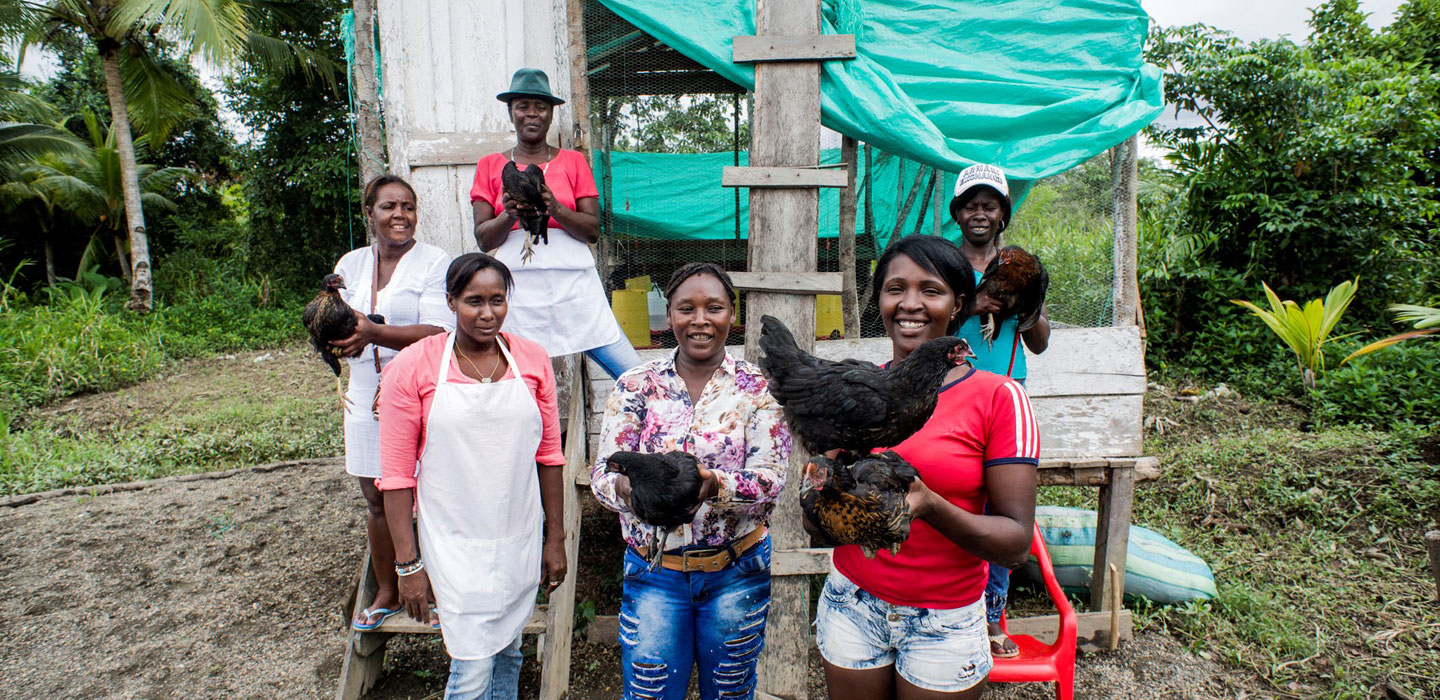Prosperity or the planet? Luckily, they're not mutually exclusive
IFAD Asset Request Portlet
Asset Publisher
Prosperity or the planet? Luckily, they're not mutually exclusive
Estimated reading time: 2 minutes
Globally, four out of five extremely poor people live in rural areas. And with over 3.8 billion people reliant on agrifood systems for an income, when value chains are strong, rural people prosper.
Yet all too often, developing value chains can harm the planet by emitting carbon and degrading environments. For example, a small-scale farmer may use excessive chemical fertilizer for a quick bumper crop, regardless of damage to water and soil, so they can send their child to school.
This harms rural communities in the long run. That’s why in order to develop truly prosperous rural areas, we must build not just strong but also sustainable value chains that protect the planet.
Farmers lead the way
Throughout our time at IFAD, we’ve heard countless inspiring stories of small-scale farmers fighting to conserve the ecosystems their livelihoods depend on, while building strong value chains.
Like Néstor Ruiz, who is painstakingly restoring land in the Bolivian Amazon that had been degraded by years of unsustainable cattle farming. He knows that to sustainably build his livelihood from agroforestry, he must help the soil recover. Now, his Brazil nut trees are flourishing.
“It requires a lot of faith in the long run, plus a lot of work, but it's worth it,” says Néstor. “[We are] making it possible for the forests to stay alive for future generations to enjoy and benefit from them.”
Or Francis Njoroge, who runs a thriving tree nursery that's helping to conserve the watershed of the Upper Tana River in Kenya, ensuring that safe drinking water runs in the taps of millions of people in Nairobi.
 |
| Francis is a proud contributor to Kenya's mission to achieve 10 percent forest cover. © IFAD/Translieu/Samuel Nyaberi |
A win-win for people and planet
By conserving ecosystems, rural people are providing essential services, not just to the planet, but also to their local communities. IFAD uses ecosystem services agreements to compensate them for this vital work.
For example, in partnership with the IFAD-supported MERESE project, indigenous farming communities in the Peruvian Andes have recovered 15,000 hectares of degraded land, conserving local rivers for thousands downstream. Not only are they compensated for protecting water sources, they are also producing more milk – and earning more – thanks to the lusher pastures.
Similar models are being explored by other organizations, like the Conservation Stewards Programme, whereby communities protect their natural resources in return for agreed benefits, including improvements to their value chains.
In Cambodia, small-scale farmers protect the endangered dragonfish in return for water buffalos, which they used to till and revive rice fields that had been heavily compacted by years of conflict.
Meanwhile, in South Africa, livestock farmers received vaccinations for their animals and market access for their meat in return for using rotational grazing to protect the delicate rangelands. It was so successful that staff from the IFAD-funded ROLL project visited the project to implement lessons learned in neighbouring Lesotho.
At IFAD, we raise awareness about sustainable agriculture and we carefully design projects that put conservation at the core of value chain development, working alongside the small-scale farmers who are proving that there's no need to choose between planet and profit.
Rural people are acutely aware that the wellbeing of future generations depends on a healthy environment. It’s our job to support them.
Publication date: 22 February 2024
